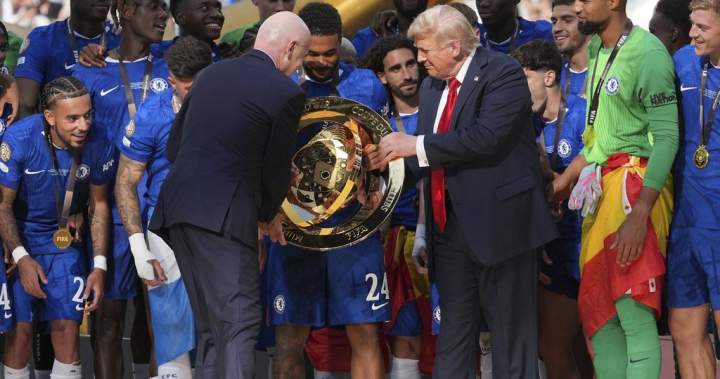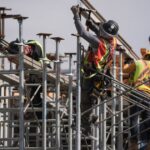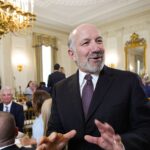In the shadow of Parliament Hill, a surprising player has entered Canadian politics—the beautiful game itself. As Vancouver and Toronto prepare to host matches for the 2026 FIFA World Cup, political headwinds from south of the border are threatening to complicate Canada’s moment on the global stage.
“We’re watching closely,” admits Deputy Minister of Sport Catherine Bremner during our conversation at her Ottawa office. Outside her window, spring rain falls on the Rideau Canal, a fitting metaphor for the uncertainty clouding Canada’s World Cup preparations. “This is about more than just soccer. It’s about our international standing and billions in economic activity.”
The concerns stem from recent legislative maneuvers in the United States Congress, where funding for American host cities has become entangled in partisan budget battles. With the U.S. set to host 60 of the tournament’s 80 matches across 11 cities, political gridlock there creates ripple effects that reach Canadian shores.
Toronto City Councillor James Pasternak doesn’t mince words about the situation. “We’re partnered with two other nations in this bid, but we’re not equal partners. When American politics sneezes, Canadian host cities catch a cold.”
That cold has manifested in delayed federal commitments for security infrastructure and transportation upgrades crucial for Toronto’s five scheduled matches. Vancouver faces similar challenges with its BC Place renovations timeline increasingly compressed.
Recent polling from Angus Reid shows 68% of Canadians support hosting World Cup matches, but only 41% believe the federal government has adequately prepared for the tournament. This gap highlights the disconnect between public enthusiasm and political readiness.
The tournament’s economic impact can’t be overstated. Tourism Toronto projects $307 million in direct spending from the five matches alone, with broader economic benefits potentially reaching $1.2 billion when considering infrastructure improvements and global marketing value.
What makes this particularly challenging is the tournament’s new expanded format. With 48 teams instead of the traditional 32, logistical demands have grown exponentially. Canadian officials find themselves walking a diplomatic tightrope—pushing American counterparts for clarity while maintaining the united front essential to the joint bid’s success.
“We’re not just planning a sports tournament; we’re navigating a complex international relationship at a time when politics has seeped into everything,” explains Dr. Heather MacIntosh, professor of international relations at Carleton University. “Canada needs this to succeed, but much of that success depends on factors beyond our control.”
The complications extend beyond infrastructure. Security coordination between Canadian agencies and their American counterparts faces unprecedented challenges given the tournament’s scale across three nations. The RCMP has requested additional funding of $118 million specifically for World Cup security operations, but approval remains stalled in budget discussions.
I spoke with retired midfielder Julian de Guzman, who represented Canada 89 times internationally, at a youth soccer clinic in Scarborough last week. “This is our chance to showcase Canadian soccer to the world,” he told me as young players practiced nearby. “But politics is threatening to overshadow what should be a celebration of the sport.”
Behind closed doors, sources within Sport Canada acknowledge contingency planning is underway, including scenarios where Canada might need to compensate for American funding shortfalls to ensure tournament standards are met. Such an outcome would likely trigger political backlash domestically.
The irony isn’t lost on many observers—while soccer has historically been a political football in Canadian sport funding debates, now actual football matches are being kicked around in political arenas.
For communities anticipating economic boosts from the tournament, the uncertainty creates planning challenges. Toronto’s hospitality sector has already invested millions in renovations and staff training, while Vancouver’s tourism board has launched international marketing campaigns highlighting the city’s role as a host.
“We’ve made commitments based on government timelines,” explains Restaurateurs Alliance spokesperson Sandra Chen. “Delays or changes now would be devastating for businesses still recovering from pandemic losses.”
The federal government insists preparations remain on track. Minister of Sport Pascale St-Onge released a statement last week confirming that “Canada will deliver a world-class experience for visitors and viewers alike.” Yet detailed funding announcements promised for April have yet to materialize.
FIFA’s inspection teams have visited both Canadian host cities twice in the past year. While official reports remain confidential, sources familiar with the process suggest Vancouver’s preparations have received higher marks than Toronto’s, primarily due to BC Place’s recent upgrades for other international events.
As summer approaches, the clock ticks louder. FIFA’s final technical requirements must be met by early 2025, leaving precious little time to resolve cross-border political complications.
“The World Cup transcends politics,” argues Canadian Soccer Association President Nick Bontis. “But preparing for it requires intense political cooperation.”
For ordinary Canadians excited to experience the world’s largest sporting event on home soil, these political machinations remain largely invisible. Ticket demand already outpaces supply by nearly seven-to-one for matches in both Canadian cities.
What’s clear is that Canada’s World Cup aspirations now depend as much on political skill as athletic prowess. As Parliament rises for summer recess, crucial decisions about the tournament’s future in Canada hang in the balance—decisions that will determine whether 2026 becomes a showcase for Canadian sport or a cautionary tale about the complexities of international sporting politics.
Walking through Toronto’s Liberty Village, where construction crews are already preparing temporary facilities for the tournament, the contrast between everyday enthusiasm and high-level uncertainty couldn’t be starker. Children kick balls against murals depicting Canadian soccer heroes past and present, while above them, political clouds gather that could reshape their World Cup experience.
In the game of international sport hosting, the final whistle remains distant, but the political match is intensifying by the day.






